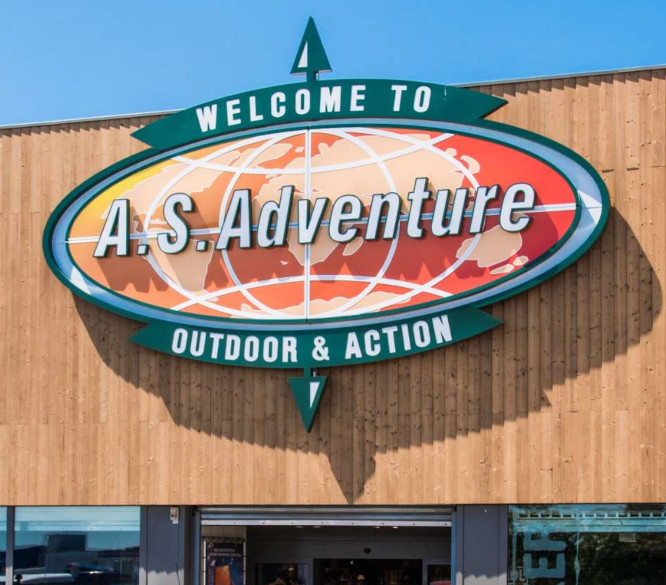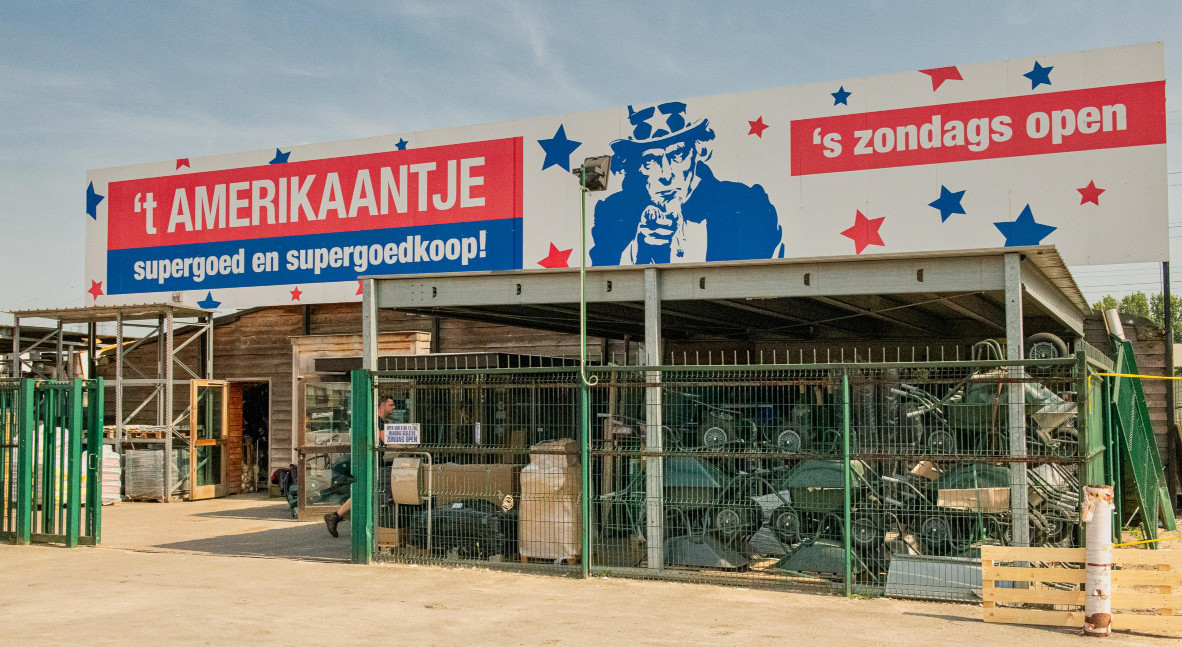American Stock
After the Second World War, surplus goods that the United States had shipped to Europe for its troops were sold off to aid in postwar reconstruction. These goods, ranging from military supplies to consumer products, eventually found their way into specialized retail outlets known as American Stockhouses. The Cold War further fueled this market, as a continuous flow of military surplus provided these stores with a steady inventory.
These stores were particularly prominent in Belgium and France, though similar models appeared in the Netherlands and Germany. Often housed in large, cluttered warehouses, they embraced a kitschy Americana aesthetic, decorating their interiors with U.S. flags, Route 66 signs, and other American iconography. Inside, shoppers could find everything from work boots and denim to outdoor gear and military clothing, all at bargain prices. The discounts and massive assortment of goods reinforced the European perception of the U.S. as a land of abundance.
As the end of the Cold War meant dwindling military surplis, and consumer preferences changed as markets globalized, the American Stockhouses declined. Many of these stores struggled to survive, unable to compete with modern retail trends. Some adapted by diversifying their inventory, while others quietly disappeared.
A.S. Adventure
One chain of stockhouses that adapted very well is one that rebranded itself to A.S. Adventure (Only the A.S. hinting at its true origins). It's an upscale chain selling outdear gear, catering to affluent travellers.
Their transformation started in 1995, and since then it has expanded to over 50 locations in Belgium, France, Luxembourg, and Germany.

't Amerikaantje
The Little Am-Am-Am-Am-American!
Open on Sundays, super good and super cheap!
Any cheaper than this? That's impossible! Yeehaw!
This catchy little song from one of Flanders' most iconic TV commercials highlights the other approach that could be taken. 't Amerikaantje (Little American), doubled down on the Americana kitsch.
The comedic band The Strangers was in the midst of controversy after singing in support of the far-right, which left them available to record this song for a commercial in 1994, based on the melody of the Bonanza theme tune.


